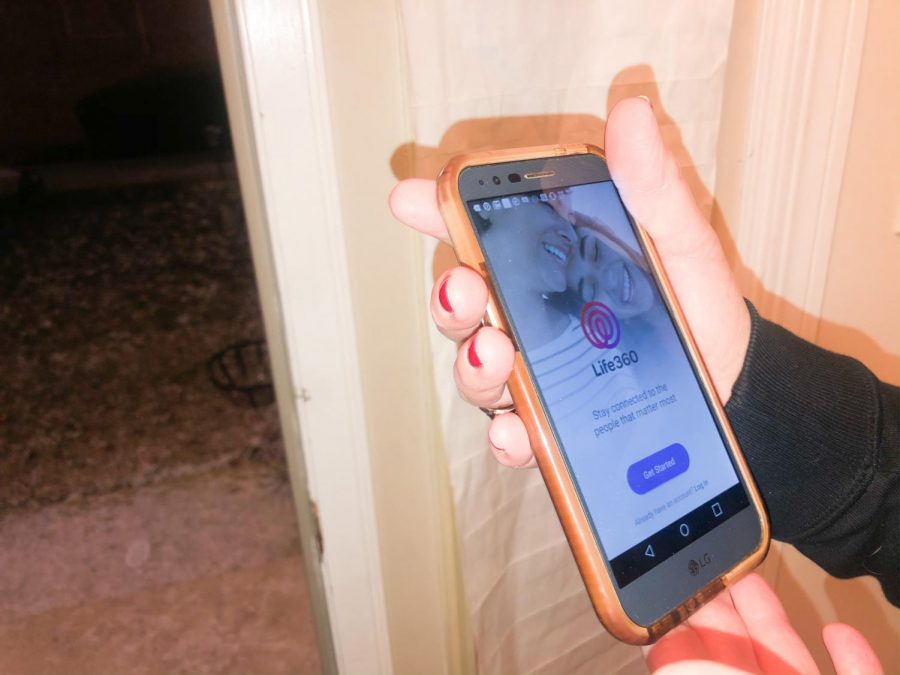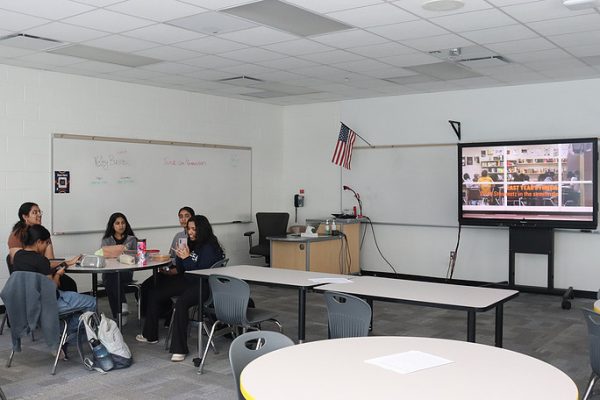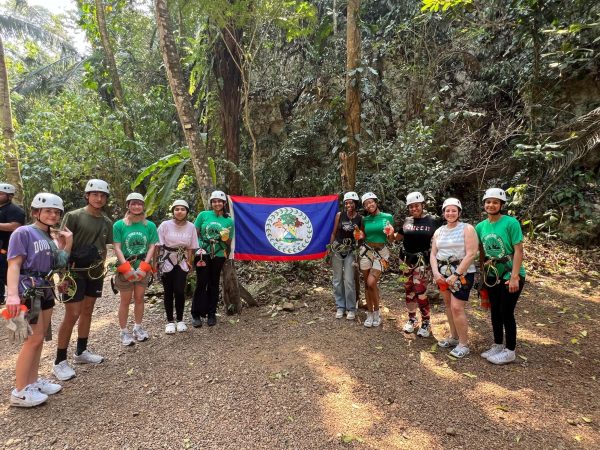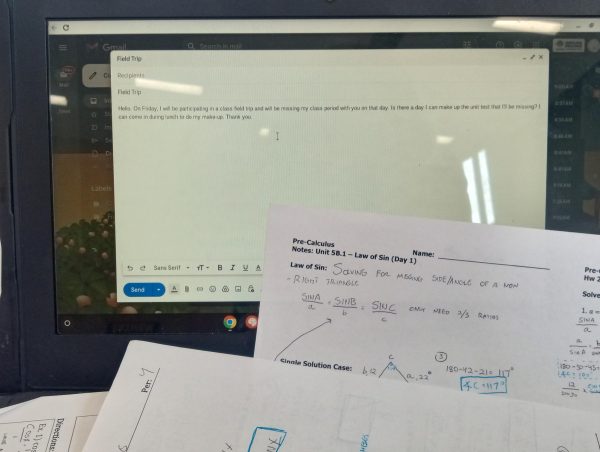Debate over Life360 app rules it both an invasion of privacy and a necessary safeguard
The Life360 app is growing in popularity among parents as it introduces more advanced features through its plans.
Doodoodoo! Mom arrived at home. Doodoodoo! Angela left Bryan’s house. By the end of 2018, approximately 18 million users were receiving alerts like these each month on the popular tracking app Life360. Of those registered, the majority constitutes a great number of American high schoolers; and for many Metea students, this mechanism not just a reality, but sometimes even a questionable lifestyle.
Released in 2008, Life360 was first developed as a way for families and friends to share their locations with ease. Since then, more households have taken interest to its newly adapted technologies (some, part of their Premium plan) which include crash detection, weekly rundowns of driver habits, and even crime and offender reports for visited locations. Reportedly, most families tend to prefer the normal plan, but this option still offers several tracking features that provide very timely specifics such as when users leave a marked property or how long their estimated driving time will be.
In some cases, parents may use the app merely for quick communication.
“We use Life360 to keep track of everyone in the family circle and make sure everyone is safe because we are busy and we all have very different schedules,” a Metea parent says.
In others, usage may coincide with college transitions or recent events.
“Life360 is a good app to use because of how it allows parents to be aware of where children are even late at night and it allows location to be detected even when the phone is off,” another parent of a Mustang says.
Senior Diya Sharma also speaks to this particular detection feature for the primary reason why her family downloaded the app.
“After incidents in the community, particularly the [recent death of] UIC student Ruth George, it worried [my mom], and she wanted my sister and I both protected in case anything would happen.”
Senior Nandini Arakoni expresses that her family’s usage of the app is relatively casual.
“My parents only used Life360 when I first got a phone in middle school as a safety precaution. Now, we all just share our locations with each other, but it is mostly a safety measure, so I don’t really worry about it. My parents only check the app if they are worried about me or my brother,” Arakoni says.
However, many students approaching their adult years feel that the tracking device may be tempting teens to be more methodical about hiding their locations than they would without the app. If not this, adolescents may otherwise be faced with the assumption that they should not be treated like adults, leaving them with a desire to demonstrate more troublesome behaviors and retaliate. Experts argue that if teens can have an open communication with their parents without the app, they will be more conscientious about avoiding the risks that Life360 was first created to confront in the first place.
“All three of my siblings have had to join the Life360 circle until they are 18, but we did not use to always have it,” junior John Butler says. “Our mom downloaded it and made us start using it after we lost trust by lying to her about our whereabouts. With Life360 being mandatory at all times, I don’t feel like my parents trust me at all, and even if I do earn my parents’ full trust, I still doubt they would let us remove the app from our phones. It has never made me change my whereabouts or influence how I get to where I am going, but there is always that uncomfortable feeling that you are not only being tracked but monitored in many different ways within the app. I personally do not like it at all because I feel like it violates our privacy and it just causes us to find sneakier ways around it, which only makes us even more mischievous.”
With the claim that Life360 is too overbearing comes a valid question from parents: How could I save my kid from a dangerous situation without knowing where they are? With each and every improvement made to mobile devices, most Apple and Android technologies are managing to integrate top-notch GPS-enablers have been used to secure locations on missing persons under severe circumstances. This means of tracking- or that which utilizes other user-accessible options like the Find My Friends app- may prove to be much less invasive than Life360 as it serves its pain purpose as a safeguard and lacks the intensity of constant notifications on one’s cell phone.
As teens grow older, it is inevitable that they will want to meet new people and explore their newfound privileges. As the majority of high schoolers will strive to assume this independence, in the process, they also want to feel as though they have the same freedom to make mistakes as their parents did when they were younger. So maybe parents do not need to know the approximate number of hard brakes their children had in the car, or a minute-by-minute assessment of driving speed and walking pace. Technology is practically becoming a parent in itself, and teens are already being restricted enough by its presence.

Noelle Smagala is a senior, and this is her second year on staff now as social media Editor and website manager of Metea Media. Though she has loved writing...












Dave Marlin • Mar 17, 2021 at 6:02 am
Most of the teenagers are grumpy and would do the opposite you tell them to do so it is better that you talk to them first and then take any step. However, only obtaining the location is not the solution if you want to protect your child. I’ve been using the Family time app for my child and it works great. You guys should check it out!
Katrina Davis • Jan 10, 2020 at 4:25 pm
I have heard this argument about these apps teaching kids to be sneaky and invasion of privacy, ad nauseam. Yes, there are Big Brother aspects to FMF and Life360, etc. But, did it every occur to any of the people who jump to this predictable argument about trust and freedom, that many parents download the app AFTER not BEFORE the trust has been broken. MANY parents do this. They give freedom and trust to their kids and then the kids break that trust by…I don’t know…throwing a giant party in their absentee dad’s rental house with more weed and alcohol than what you see in a Seth Rogan movie after deliberately lying about where they were going. And then being given the typical consequences followed by reinstatement of freedom only to…I don’t know…meet up with friends at a picnic site and then drink a ton of vodka, get fall-down drunk and then get driven around by the one slightly sober person there until they sleep it off. This is what the ostensibly good students are doing–the athletes, choir kids, Speech and debate kids…because we have gotten so soft as a society. Privacy gets confused with secrecy. Self-advocacy gets confused with insolent disrespect and entitlement. As parents of teens now, we grew up in a time where weed smoking (really weak weed) and sneaking mom and dad’s alcohol was done, but not to this extent. Not binge drinking every weekend and vaping nearly pure THC. We can lock them up or they can PROVE they are trustworthy by going out and having fun and letting us see they are where they say they are. We aren’t tracking them for fun or control. They can earn trust back with the app. Without it, who knows? Maybe we never trust them again. Plus, there are places my parents wouldn’t let me go because there was no way to know if I was safe. These apps give parents the freedom to relax and give their kids more freedom. I can tell you for a fact, that as an adult who isn’t leading a double life or doing anything nefarious, having a family member able to track my location has no negative impact on my life.
Neil Degrasse Tyson • Dec 13, 2019 at 7:50 am
Hey guys its me, Neil Degrasse Tyson. I definitely think these apps and similar apps are an invasion of privacy. It also shows a lack of trust. If your parents download this app and make you download it they are basically saying they don’t trust you to not be tracked and monitored.
Balin Hoag • Dec 12, 2019 at 10:14 am
Life 360 just teaches kids to be sneaky. If you use the argument that you use life 360 as a safeguard, then use the “find my phone” feature on your smartphone.